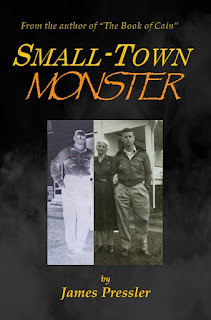Personally, I believe there are some laws that shouldn't have to be laws because one would think they are just common sense. For example, not drinking then driving. It seems like a good idea to not operate 2,500 pounds of steel when you're a little wobbly just standing up. However, not many people follow common sense in this case, therefore there are laws. Well, I would like to propose a common-sense rule about writing that might seem obvious but we occasionally need to be reminded about. Nothing as serious as the DUI situation above, but definitely worth stating.
First and foremost, I am not against writing while intoxicated. One of my early posts, "Write Drunk, Edit Sober" actually suggests a form of this. However, I am a results-driven person, so should point out that the idea behind that post was to write freely and openly, uninhibited by all those restrictions we impose on ourselves. Whether you actually drink before you write is up to you. I indulge periodically before I write, if only to loosen up, but that's personal preference. And as long as I can still type, an adult beverage is not a problem.That kind of "Under the Influence," however, is not what I am referring to.
Now that my second novel, "Small-Town Monster," is finally finished and on the shelves (Amazon, Barnes & Noble, Foyles), I am working on a slightly lighter work with fewer dark edges to it. It requires a lot of reworking and tweaking so I will be spending a lot of time deep in the manuscript. This, however, is where I want to remind myself to be careful. Now, by being careful, I don't mean that I shouldn't be uninhibited in my writing. This is definitely a work where I need to be all-in and totally immersed in what I am doing. There is a difference, though, between "writing drunk" versus "under the influence." That difference is kind of critical, and it's best to gauge which one is guiding us when we write.
Here's the simplest example: I had a great idea for a very amusing story about a child trying to understand his parents' world. It was very much voiced from a child's perspective, and I really wanted to play with the character's voice and such to bring out the fun of the moment. So I wrote it, polished it, then workshopped it for opinions. It was an unmitigated disaster. There was nothing wrong with the writing itself, but the voice, the tone, the humor, they all missed the mark entirely. This wasn't just a driver going outside the lines, this was flipping the car into a ditch. It was an epic fail, and it didn't take me long to figure out why.
At that time, I was delving into my past to sort out a lot of personal issues. Needless to say, this was not an easy process to do emotionally, and as it turned out, those emotions promptly carried through to my writing - and not in a good way. Emotional turbulence, it turns out, can get in the way of child-like innocence and humor. In this case, I was under the influence of all these feelings, and ended up steering my story right into a tree.
One thing I do nowadays is do a quick little inventory check to see if something in my world might interfere with my writing mood. If my beloved Cubs are in a slump (which happens more than I would like it to), I try to avoid typing optimistic stories. If I feel that inner family turbulence, it might not be the best time to write a children's story. However, this can work for me as well. The best stories I ever wrote about my parents were when I was immersed in the emotional space of having lost them. The stories weren't very happy, but they were effective. I recognized being under the influence of their presence, and I turned into the skid and let that power up my writing. It worked very well, thank you very much.
Emotions do wonderful things for writers, and shouldn't be ignored. However, they should be checked and examined, just so you make sure that what you feel and what you write blend into something great. Otherwise, your writing might leave you with a bad hangover.





